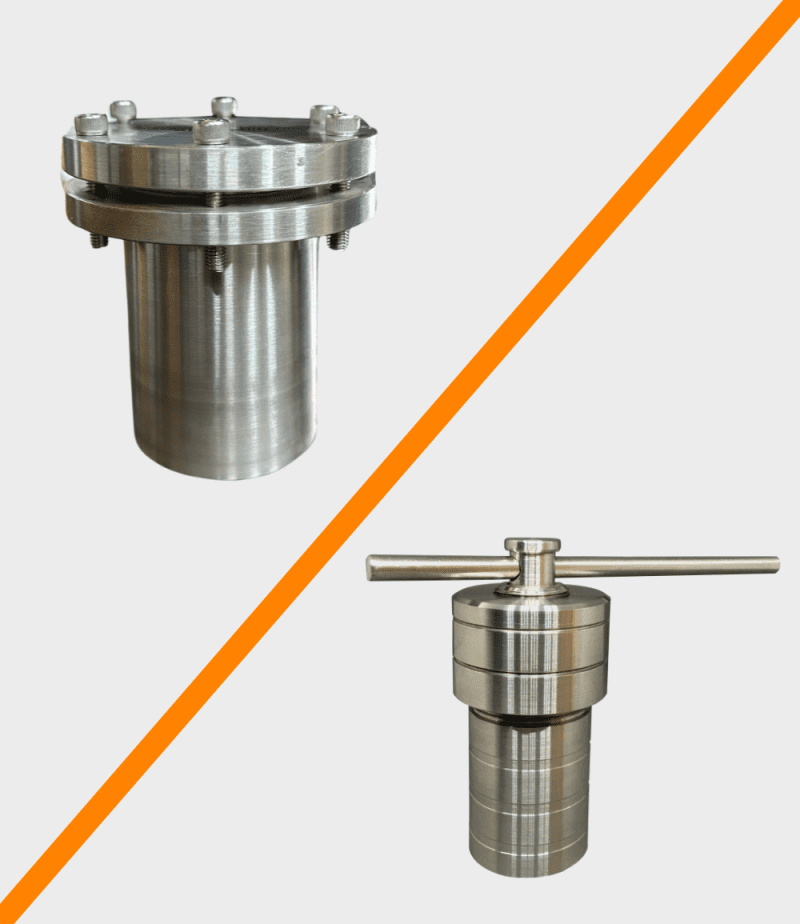High-pressure hydrothermal autoclave reactors are essential tools in scientific research and industrial applications. These reactors are designed to perform reactions under high temperature and pressure conditions, mimicking natural geological processes. Their unique features and versatility make them indispensable in various fields. This article explores the diverse uses of hydrothermal autoclave reactors and their importance in advancing technology and science.
What Are High-Pressure Hydrothermal Autoclave Reactors?
A hydrothermal autoclave reactor is a sealed vessel used for carrying out chemical reactions that require high pressure and temperature. The reactor, often referred to as a high-pressure hydrothermal autoclave reactor, typically consists of a strong, durable body and a secure sealing mechanism designed to withstand extreme conditions.
- High-Quality Material: Often made from stainless steel, PTFE, or other corrosion-resistant materials.
- Sealing Mechanism: Ensures a secure environment for controlled reactions.
- Temperature and Pressure Tolerance: Can withstand extreme conditions, often up to 300°C and 200 bar.
These features allow hydrothermal reactors to facilitate reactions that would be challenging or impossible under normal atmospheric conditions.
Key Uses of High-Pressure Hydrothermal Autoclave Reactors
1. Synthesis of Advanced Materials
Hydrothermal reactors are widely used to create advanced materials with unique properties. Examples include:
- Nanomaterials: Synthesis of nanoparticles, nanowires, and nanotubes for applications in electronics, medicine, and energy storage.
- Zeolites: Crystalline structures used as catalysts and adsorbents.
- Ceramics and Crystals: High-purity crystals for optical and electronic applications.
2. Study of Geochemical Processes
These reactors replicate conditions found deep within the Earth’s crust, making them valuable for:
- Mineral Formation Studies: Understanding how minerals form under high pressure and temperature.
- Geological Simulations: Researching natural hydrothermal systems, such as those near volcanic vents.
3. Chemical Reaction Optimization
In industrial chemistry, hydrothermal autoclaves are used to optimize reactions that involve:
- Catalyst Development: Testing and improving catalyst performance under extreme conditions.
- Hydrothermal Synthesis: Creating compounds that require water as a reaction medium at high temperatures.
4. Pharmaceutical Applications
Hydrothermal reactors play a role in pharmaceutical research, particularly in:
- Drug Synthesis: Developing new compounds and optimizing their stability.
- Crystal Engineering: Designing crystal forms for better drug delivery and solubility.
5. Renewable Energy Research
Hydrothermal autoclaves contribute to advancements in sustainable energy solutions, such as:
- Hydrothermal Carbonization: Converting biomass into biochar or other carbon-rich materials.
- Battery Materials: Synthesizing electrode materials for high-performance batteries.
6. Environmental Applications
These reactors are also utilized in environmental research to:
- Study Pollution Control: Investigating ways to remove contaminants using hydrothermal methods.
- Waste Treatment: Developing processes to recycle or treat industrial waste.
7. Food and Flavor Industry
In the food industry, hydrothermal reactors are employed for:
- Flavor Extraction: Enhancing flavors through hydrothermal processing.
- Nutrient Preservation: Studying the effects of high pressure on nutrient stability.
Advantages of Using Hydrothermal Autoclave Reactors
- Controlled Environment: High precision in temperature and pressure control ensures consistent results.
- Versatility: Suitable for a wide range of applications across multiple industries.
- Safety Features: Modern reactors are designed to handle extreme conditions safely.
- Scalability: Available in different sizes, from small laboratory-scale units to large industrial reactors.
Tips for Using Hydrothermal Autoclave Reactors
- Material Selection: Choose the appropriate material (e.g., stainless steel or PTFE) based on the chemicals used.
- Proper Sealing: Ensure the vessel is securely sealed to prevent leaks.
- Regular Maintenance: Clean and inspect the reactor to avoid corrosion and maintain efficiency.
- Temperature Gradients: Avoid rapid heating or cooling to prevent stress on the reactor.
Conclusion
High-pressure hydrothermal autoclave reactors are powerful tools that enable groundbreaking advancements in materials science, environmental research, pharmaceutical development, and more. Their ability to replicate extreme conditions has opened new frontiers in understanding and creating materials with unique properties. By utilizing these reactors, researchers and industries can achieve innovative results that drive progress in various fields.




